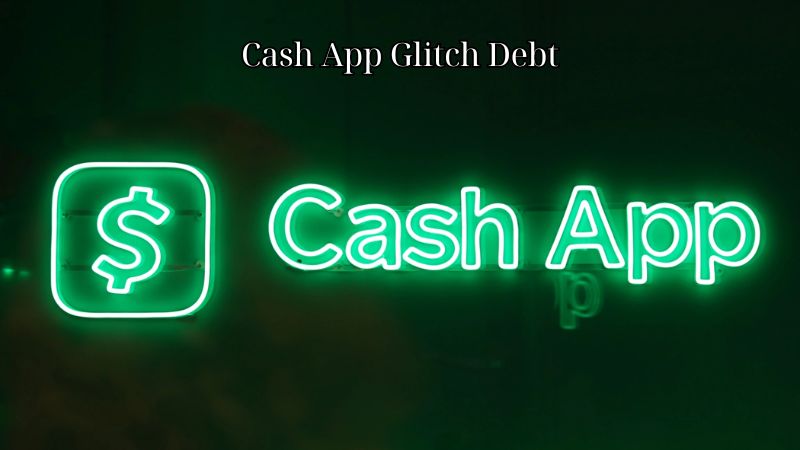The rise of digital payment platforms has introduced convenience to financial transactions, but it has also led to challenges, including security issues and “glitches” that sometimes impact users. One particular issue gaining attention is the phenomenon of “Cash App glitch debt.” This term refers to debt or losses that some users experience due to unintentional errors, glitches, or manipulations on the Cash App platform. Wallpaper2k.com will explore what Cash App glitch debt is, why it happens, and how users can protect themselves.
1. What is Cash App?
Cash App is a popular digital payment app that allows users to transfer money, make purchases, and even invest in stocks or Bitcoin. Created by Square, Cash App simplifies transactions with user-friendly tools and features, but like any digital platform, it’s not immune to errors and technical issues.
2. What is Cash App Glitch Debt?
“Cash App glitch debt” generally refers to a situation where users find themselves in debt or incur losses due to glitches, errors, or unexpected issues within the app. In many cases, these situations occur when:
- Payment Glitches: Users may experience double charges, delayed transactions, or reversals that impact their account balance.
- Unauthorized Transactions: In rare instances, unauthorized transactions may occur, putting users in a financial deficit if funds are withdrawn without consent.
- Technical Issues: Software updates or system errors can cause balance inaccuracies or duplicate charges, affecting users’ finances.
3. Common Causes of Cash App Glitch Debt
Understanding the causes of Cash App glitches can help users navigate the platform more safely:
- Network and System Errors: Sometimes, technical glitches occur on the app’s end, particularly during system updates or peak usage times. Network errors can cause payment lags or incorrect balance displays.
- User Error: Users may sometimes make mistakes, such as accidentally sending money to the wrong recipient or initiating duplicate transactions due to slow processing.
- Fraud and Scams: Fraudsters may exploit Cash App’s open nature, tricking users into “glitch” schemes, which promise “free” money by exploiting system errors. These schemes often leave users with no funds or additional debt.
4. Popular Glitch Scams and Their Risks
There are several types of scams and tricks that fraudsters use to exploit Cash App, often with significant financial consequences for the victim. Some popular ones include:
- “Flipping” Scams: This scam promises users a quick profit by “flipping” their money. Victims are asked to send a small amount, which the scammer claims will be “multiplied” through a glitch in the system. Instead, victims lose their funds.
- Phishing Attacks: Fraudsters may impersonate Cash App representatives to gain login information from users, which they use to access and drain accounts.
- “Free Money” Offers: Many users fall prey to fake claims of a “glitch” that offers free money. They’re often asked to share sensitive information or transfer money, only to lose access to their funds entirely.
5. Protecting Yourself Against Cash App Glitch Debt
Fortunately, there are ways to reduce the risk of experiencing glitch-related debt or scams on Cash App:
- Only Interact with Verified Accounts: Always ensure that you’re only engaging with verified Cash App accounts and representatives. Cash App will never ask for your PIN or sign-in code outside of the official app.
- Avoid Glitch Scams and “Free Money” Offers: Remember, if something sounds too good to be true, it likely is. Avoid offers that promise to exploit Cash App’s systems or provide free money.
- Enable Security Features: Set up two-factor authentication, PIN codes, and other security measures provided by Cash App. These tools can help prevent unauthorized access to your account.
- Regularly Monitor Transactions: Make it a habit to review your transaction history for any irregular activity. Quick action is essential if you spot anything suspicious.
- Report Issues Immediately: If you notice a glitch, error, or unusual transaction, report it to Cash App support immediately. Prompt reporting increases the chances of resolving the issue and recovering funds.
6. Steps to Take if You’re Affected by Cash App Glitch Debt
If you find yourself impacted by a glitch or unauthorized transaction on Cash App, take these steps:
- Contact Cash App Support: Report the issue via Cash App’s official support channels, accessible through the app or website. Avoid third-party support claims, as they are often fraudulent.
- File a Dispute: In cases of unauthorized transactions, you can file a dispute to request a reversal or compensation. Cash App will investigate the issue to determine the next steps.
- Monitor Your Financial Accounts: While waiting for a resolution, keep an eye on your bank accounts linked to Cash App to ensure no additional unauthorized transactions occur.
- File a Report with Your Bank (if necessary): If the issue involves your linked bank account, you may also need to contact your bank to investigate or temporarily freeze the affected account.
7. Cash App’s Responsibility in Addressing Glitch Debt
Cash App has taken steps to reduce glitches and errors, but as with any digital service, issues can still arise. Here’s what Cash App does to protect users:
- Security and Fraud Prevention: Cash App continuously improves its security measures to detect and prevent fraud, including offering options for reporting scams and securing accounts.
- Customer Support: Cash App offers official support for users who experience issues with transactions or glitches. In many cases, they can assist with resolving disputes, correcting balances, and recovering lost funds.
- Education: Cash App provides guidelines and resources to help users recognize scams and avoid common pitfalls. By staying informed, users can better protect themselves against potential threats.
8. Tips for Safe Cash App Usage
To ensure a safe and smooth experience on Cash App, consider these best practices:
- Use a Unique Password: Create a strong, unique password for your Cash App account and avoid using the same password for other accounts.
- Avoid Public Wi-Fi for Transactions: Using secure networks for transactions helps protect your financial data from unauthorized access.
- Limit the Amount in Your Cash App Balance: To reduce exposure, avoid keeping large amounts in your Cash App balance, and transfer funds to your bank account regularly.
- Stay Informed: Keep up with any news or updates regarding Cash App to stay aware of potential scams or common issues.
Conclusion
While Cash App is a convenient tool for managing finances, it’s important to stay vigilant against glitches, scams, and unauthorized transactions that could lead to “Cash App glitch debt.” By understanding the risks, using security features, and staying cautious, users can safely enjoy the benefits of Cash App without falling victim to debt or scams. Always use official channels for support and avoid schemes promising quick or “free” money.




